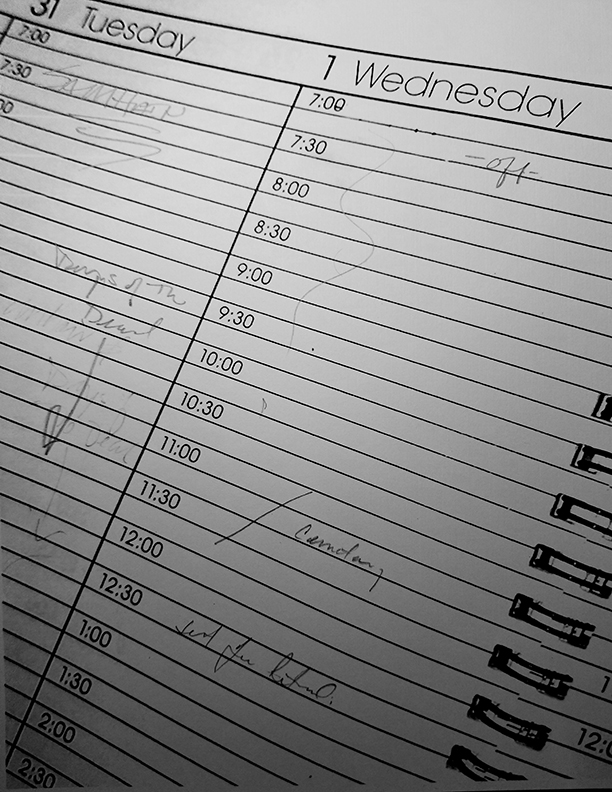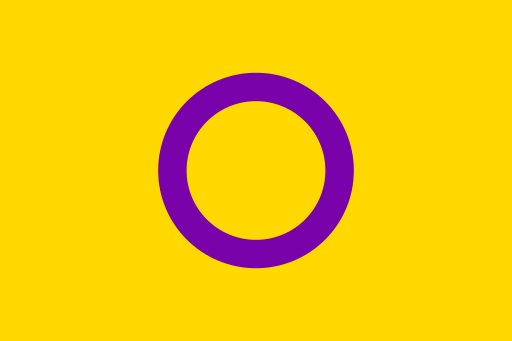Pagan Perspectives
For the past few weeks, we’ve been cleaning out my mom’s apartment. She died a few months ago. I was surprised at how much stuff I left in her apartment, how much stuff everyone in my family collected throughout the years. Now, her stuff is at my house and, well – there’s just too much stuff. I’m hoping that the season of Samhain has time for some rummaging, sorting, giving away, and old-fashioned dumping.
The things I found in her apartment – forgotten sigils, half-finished experiments, highlighted notes, dog-eared paperbacks. Among all of that, I found a personal appointment calendar from my first year of magical training. I had color-coded the dates to match the newly-learned wheel of the year, which I remember being deeply excited to celebrate. I had torn out the pages and reordered them so that the calendar began on November 1. Each sabbat was marked, and I jotted notes on their meanings, lore, and observance throughout.
As I read over my old notes now, I notice how little I paid attention to the balance and the complexity of sabbat meanings and their interconnection. Instead, naively, I made notes on things I thought were very important to remember, like the reason we carve jack-o-lanterns or wear costumes on Halloween. I was trying to get things right, but I had focused on the material elements of the sabbats instead of the spiritual.

Scribbles from the ’80s (Photo Credit: M. Tejeda-Moreno.)
What struck me the most in reading this half-calendar, half-journal, laden with newbie scribbles, was how much binarism remains in the wheel of the year. My notes on Samhain, in particular, brimmed with constant contrasts rather than complexities – light versus dark, sleeping versus awakening, fear versus joy, death versus life. It was a reminder to me of how reductionism is so alluring and why non-binary spaces are so transgressive.
My notes missed not the black and white of the sabbats, but the gray. My notes were about life and death as opposites, not as transitions along a continuum of existence. The more I read, the greater the starkness seemed, to the point that the notes read as a series of punctuated differences. Samhain was about contrasts rather than the flows of existence and awareness.
It is easy, even natural, to get focused on isolated facts. Exploring complexity is hard, and reductionism is so shamefully easy. It seems like we must battle our nature to resist dichotomies. Even identifying binarism itself results in a dichotomy. It is fantastically easy to create compartments and then despise anything that doesn’t fit into them, while it is hard work to break dichotomies and appreciate complexity. As the soprano singer Beverly Sills once quipped, “There are no shortcuts to any place worth going.” In recognizing that, we begin to see the dangers of simplification.
It is not difficult to see how damaging those dichotomies are to people of sexual and gender diversity, or to people who exist along the continuum of racial, ethnic, and cultural expectations. We need to take a moment see with clarity. The social assault to classify, clarify and polarize is often difficult to see from positions of privilege, but nevertheless, it is present and constantly at work. Binarism happens in our politics and our privacy. This is the well of misogyny, transphobia, heterosexism, racism – the whole lot of it. It is a deep well, especially favored by the kyriarchy.

Intersex Pride Flag [Source: Creative Commons]
Whether the mention is about duality in divinity or gendered roles in pantheons, our reaction is often to reject concerns in the name of tradition. We look to the past to validate interpretations of the present. We too often fall victim to that entrenchment of institutionalized ritual and practice to authenticate our beliefs and ceremonies. That call for tradition is often an invocation about how our ancestors expect us to live.
Here I am left to wonder if that is what our ancestors actually want. As they observe modernity, there may be some things that they lament, but they are most likely celebrating the accomplishments that make the lives of their progeny easier. They are witness to the great strides of science and expansion of freedoms. They see the elimination of ailments. They see the extension of civil liberties. They rejoice in the removal of oppression and oppressors from their progeny that shackled them so fully, and join in celebrations of liberty, like today’s Intersex Awareness Day.
Our ancestors have the benefit of beholding transitions, whether they are different forms of being or different ways of existing or different ways of expressing. They may not all be of like mind, but they all fight for their progeny to suffer less; that is their manifest love of us. I think this is why our ancestors cheer the fight against binarism. It’s really not that their lives were simpler, but they were likely more constrained; at least for my ancestors, their freedom to be was subordinated by expectations, colonialism, racism and religious oppression. I believe those ancestors see that letting go of binary expectations is one more hook removed from our spirit that returns us to our wild and powerful nature. They might not understand all of our current desires, and they might not understand how we express our diversity. They may not be too sure about the expansion of some of those civil liberties. But they do see the power of that unhooking, and they revel in our complex authenticity.
The Wild Hunt is not responsible for links to external content.
To join a conversation on this post:
Visit our The Wild Hunt subreddit! Point your favorite browser to https://www.reddit.com/r/The_Wild_Hunt_News/, then click “JOIN”. Make sure to click the bell, too, to be notified of new articles posted to our subreddit.